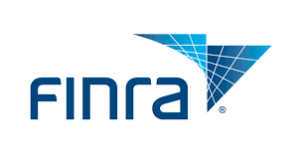- Free Consultation: (212) 897-5410 Tap Here To Call Us
Summary of FINRAs Examination and Risk Monitoring Program Findings for 2022

FINRA recently published its 2022 Report on FINRA’s Examination and Risk Monitoring Program to provide member firms with guidance and insights gathered by FINRA’s Examinations and Risk Monitoring programs over the course of the year. The report also serves to inform firms what FINRA sees as “emerging” compliance risks that FINRA’s Examinations and Risk Monitoring programs intend to focus on for 2022.
Among the various areas covered by the report is a section addressing outside business activities (“OBAs”) (FINRA Rule 3270) and private securities transactions (“PSTs”) (FINRA Rule 3280). FINRA noted in its “Exam Findings” section a number of common mistakes being made by firms.
FINRA Rule 3270 requires registered representatives to notify their firms in writing of any proposed outside business activity. Member firms are then required to “evaluate the advisability of imposing specific conditions or limitations on a registered person’s outside business activity, including where circumstances warrant, prohibiting the activity.”
FINRA Rule 3280 requires registered representatives to notify their firms in writing of any proposed PST and get firm approval for any PST for which the registered representative will receive compensation. A firm approving a PST where the associated person has or may receive selling compensation must record and supervise the transaction as if it were executed on behalf of the firm.
Exam Findings
The first finding concerned the failure to properly interpret the rules. FINRA found that firms were interpreting “compensation” too narrowly and not taking into account such things as the registered representatives’ receipt of membership interests, preferred stock or even tax benefits. FINRA found instances where no notice of an OBA or a PST was provided which is an obvious rule violation. FINRA also found that firms were not retaining the necessary documents to demonstrate compliance with the rule, such as documentation of the review, approval or disapproval of OBA and PST notices.
Where firms’ approvals contained limitations, such as not soliciting firm clients, FINRA found that firms failed to monitor if these limitations were being followed. FINRA also found that firms were incorrectly assuming that all digital assets were not securities and therefore not categorizing certain transaction as PSTs.
FINRA Recommended “Effective Practices”
Not surprisingly, FINRA suggests that registered representative be required to complete periodic questionnaires regarding their involvement or potential involvement in any PST or OBA. This would seem to be a fairly universal practice among firms. As a side note, “potential involvement” is an area that gets many financial advisors in trouble. Approval must be sought before any action is taken by the registered representative. It is not uncommon for a registered representative to set up a company for some future, sometimes even unknown, purpose. Even if the company is inactive, it must be disclosed before it is formed.
Some of FINRAs other suggested practices are a bit more extreme. For example, Firms may be surprised to find that FINRA expects them to not only review the PST or OBA at the time of disclosure but continue to monitor it through periodic reviews of social media, internet websites, e-mails and interviews of registered representatives.
FINRA also suggests monitoring the other “red flags” such as the changes in a registered representatives’ “performance, production levels or lifestyle . . . .” FINRA recommends regular, periodic background check and reviews of such things as bank statements and tax returns.
Key Takeaways
It seems likely that few firms have procedures in place for monitoring OBAs and PSTs that include “regular, periodic background checks” or regular reviews of registered representatives’ tax returns and bank statements or “lifestyle.” Similarly, it is hard to envision a firm that regularly reviews registered representatives’ social media accounts. Indeed, at larger firms, such monitoring and supervision would likely be a full time job for several employees. That being said, FINRA’s report makes it clear that firms must do more than simply having registered representatives fill out an annual questionnaire. FINRA also makes it clear that, even if a firm conducts a thorough review at the time of approval an OBA or PST, a firm must also having procedures in place to continue to monitor and supervise that OBA or PST after that initial approval.
Herskovits PLLC has a nationwide practice defending against FINRA investigations and disciplinary proceedings. Feel free to contact us at (212) 897-5410 for a consultation.





